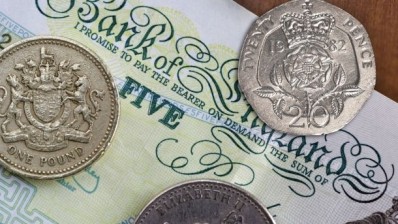Productivity
Cash in with top tips

Put systems in place
“A lot of pubs don’t have systems,” says Carter, who also recently featured in Channel 5’s The Hotel Inspector. “When I ran the Ship Inn at Owslebury, Hampshire, we had a situation of logjams in the kitchen every Saturday at 8pm. Bookings were just being written down as they came in. We drew up slots for every quarter of an hour in the booking system and suddenly everything became much slicker.”
Systems are also needed to ensure information is acted on, she adds. “If your stocktake shows you are a bottle of vodka light, why is that? Is it being stolen? Has it been dropped? What processes are in place to find out? That’s the bit everybody misses.”
Train your people
“People think running a pub is just about being sociable and pulling pints,” says Ali Carter, managing director of consultancy CaterCost and former licensee of award-winning pubs. “But it is a complex business and you need a big cross-section of skills including accountancy and man management. Training should be top of the list for improving productivity.
“People say ‘What if I train my staff and they leave?’ Well what if you don’t train them and they stay? They make the difference to customer experience and put your reputation on the line.”
Cut down waste
“The biggest difference I ever made at a pub was spending two weeks at the Ship Inn calculating the cost of items on the menu,” says Carter. “With this information we made changes to vegetable accompaniments, portion sizes and so on. We put £10,000 on the bottom line in a year.”
Look thoroughly at the business to see where you could make savings – starting with staff costs. “If everyone is clocking on and off at the same time, despite patterns of business, you could make savings by staggering shifts.”
Manage your attention
“Think not about managing time but managing attention,” says Allcott, whose firm runs time-management courses. “Otherwise it becomes hard to make decisions. Do the stuff that requires the most energy at the times you have the most energy. For many people this is mid-morning. Have a separate list of mindless tasks to do at the end of the day – and give yourself permission to flag a little then.
“Similarly, recognise that you make better decisions when you are rested. When you are under pressure that’s when you least feel able to take a day off, but it’s when you most need it.”
Focus your efforts
“Productivity comes from making space,” says Graham Allcott, founder of training firm Think Productive and author of best-selling book How to Be a Productivity Ninja. “It comes from deciding to do less.”
He points to the Pareto principle, which suggests 20% of what you do creates 80% of the impact. “Look at where you can focus on the 20%,” says Allcott. “For example, make sure you have the most efficient staff on during a Saturday night, and focus on making the pub even busier then. If you do food, focus on a few key dishes. Simplify the kitchen.”
Boost efficiency
“There is a set-up cost each time you start to do something,” says Allcott. “Batch processing is a key tip. Have an action list for the pub or each person you need to speak to and use it as an agenda. If you have jobs to do in the cellar, do them all in one go.”
Efficiency is catching, he adds, and creates well-oiled workforces. “When you get stuff done it releases dopamine, which is a happy chemical. It is scientifically the case that productive teams are happy teams.”
Justify costs
“Turnover is not an indicator of success, you need a good profit margin,” says Nicholls, who is chief executive of the Association of Licensed Multiple Retailers. “If you are going to make a big commitment to screens and licenses for showing sport, for example, then you need to justify that investment. Have a long, hard look at the business – am I making enough from opening this extra hour to justify the costs?”
Breadth not depth
“There is a lot of research that will help you get a good product mix,” says Kate Nicholls of the ALMR. “A common mistake is too much choice; quantity over quality. For example, you need a standard, a premium and a craft beer – have breadth not depth.”
Choose the right drinks and meals for the type of pub you’re running, she advises. “Look at what makes the margins and gross profit. Remember that a lot of adults don’t drink alcohol so they want premium adult soft drinks.”
Look at social return-on-investment
Twitter, Facebook and Instagram accounts can look great, but are they delivering value for your effort?“ Lots of owners are looking at apps and social media,” says Nicholls. “You need to do it properly, and it can absorb a lot of time and money. If there is a choice between customer service in the venue and customer service online, it’s better to focus on the venue. You can have a basic presence but don’t focus
on social media to the exclusion of other things.”
Love your cellar
“The priority for me is the quality of the beer and the cellar,” says Goodall, who is manager of the Timothy Taylor-owned Woolly Sheep Inn at Skipton, North Yorkshire, which won Best Managed Pub at The Morning Advertiser’s Great British Pub Awards in 2014. “There is a huge knowledge gap in the trade when it comes to cellars. If you can keep beer clean and lay it down correctly, it makes an unbelievable difference. We have gone from selling 600 pints of ale per week to 2,500.”
Stay on trend
“You have to watch out for new trends,” says Andrew Goodall of the Woolly Sheep Inn. “With the craft beer revolution, we put guest beers on alongside Timothy Taylor ales and sales went up because people came and tried everything. When Prosecco sales became massive, we followed that. Now we’re doing it with premium gins.”
Consider your pricing
“If you set prices at the right level you can justify those through the quality you serve,” says Goodall. “You will be more profitable that way. As a local pub you can have a small customer base and want people to come back to you rather than go to someone else. If you are 20p dearer than a competitor there has to be a reason for that. For example, if customers want to know the train times, then the staff help them out.”
Closing the productivity gap
The UK workforce produces less per hour than our main economic competitors such as Germany, France and the US. A range of solutions have been offered by Government, business and others, including training and investment in infrastructure. But these can only yield lasting improvements if workplaces are operating at their best.
The way workplaces are organised, the part played by managers and owners, and the role and involvement of employees, can help deliver better outcomes for individuals, organisations and the economy.
Workplace specialists Acas has put together a Productivity Tool that can help you understand your company’s strengths and weaknesses, and help identify simple practical steps you can take to get the best out of your staff. Visit https://obs.acas.org.uk/productivity for more details.










